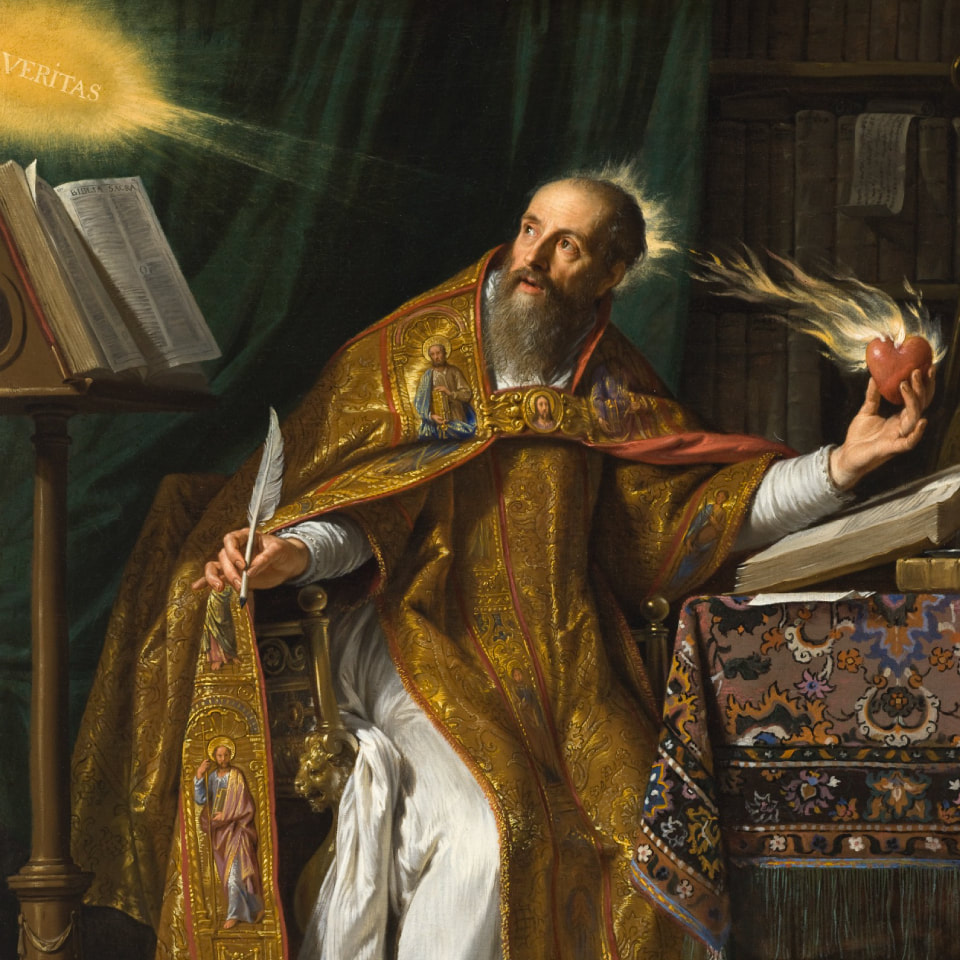|
Selected verses from Ecclesiastes and Luke 15:11-24 What Does God Have to Do with It? Over twenty years ago I watched a television talk show that had a discussion I remember to this day. I don’t remember which of the world’s problems was being solved, but I do remember an exchange between the host and one of the guests. The host asked, “Don’t you believe in God?” to which the guest replied, “Yes, but what does that have to do with the way I live my life?”. That may sound alarming for some, but the idea expressed by the guest is not all that unfamiliar – throughout history or in our own day. George Barna, whose research group surveys the religious beliefs and attitudes of the American people, has written extensively on such topics and continues to discover that the beliefs a person professes does not necessarily impact the behaviors of that person. In one of his books, Barna discovered that while 74% of those polled strongly affirmed that there is only one true God, who is holy and perfect, and who created and rules the world, only 47% strongly agreed that their faith in that same God was relevant to the way in which they lived their daily lives. Rembrandt and Warhol That attitude moved one writer to observe that in the 1660s, Rembrandt placed himself in one of his paintings of Jesus being raised on the cross, in an effort to show that he contributed to the need for Christ’s death. And in the 1960s, Andy Warhol painted Campbell’s Soup cans. In the writer’s opinion, the contrast in paintings reflected what he called, “the curious emptiness and meaninglessness of our modern culture.” I’ll let art critics hammer out the merits of that writer’s interpretation of the paintings, but there has certainly been a lasting struggle in our world to find meaning for our lives. Some throw themselves into their families, pursue upward advancement at work, seek better health and social status, or fill their time watching sports and enjoying more and more leisure, just to name a few. King Solomon None of these pursuits is inherently wrong, but for many, they do point to what may be considered a bothersome emptiness that nothing seems to fill. This is the message of Solomon in the Book of Ecclesiastes. In it, he testifies to his life’s pursuit to find real and lasting meaning in his life. He writes in Ecclesiastes 1:12-13, "I, the Teacher, was king over Israel in Jerusalem. 13 I applied my mind to study and to explore by wisdom all that is done under the heavens." He had been searching for truth, wisdom, and meaning in the many activities that filled his days, but his conclusion to these reflects only pessimism and discouragement. Verse 14 is Solomon’s summary to these pursuits. He concludes, "I have seen all the things that are done under the sun; all of them are meaningless, a chasing after the wind." His feelings express the plight of poor Sisyphus of Greek mythology. You may remember that Sisyphus was condemned by the gods. His punishment? He was sentenced to roll an enormous boulder to the top of a hill, only to watch it roll down the other side, and then to repeat the task again and again and again, without end. His grueling labor did not solve a problem, create anything good, or enable him to grow as a person. Nothing beyond the task was accomplished by his effort. It was truly meaningless. It was the very definition of futility. Solomon felt the same way Sisyphus must have felt. Solomon sensed an emptiness in the pit of his stomach. Throughout Ecclesiastes he continually asked, “is this all there is?”. An Unlikely Candidate Let’s remember who Solomon was. He was the wisest, richest, and most powerful man of his day. Therefore, when a person like him asks the sorts of questions we find in Ecclesiastes, we need to tune in and hear what he has to say. Dismayed and discouraged, Solomon found himself unable to discover any real and ultimate point to all his effort. There didn’t seem to be anything that contributed lasting value to his life. Instead, he seemed to think that none of his accomplishments would even be remembered. Many of us have heard the quip, purportedly uttered by a successful CEO, “You better enjoy your position while you have it, because after you retire, they don’t return your calls anymore.” That’s what Solomon was afraid of. His outlook in Ecclesiastes revealed a life that was highly invested in temporal attainment and fame, and not a life that cared much about God’s eternal perspective. He mourned over the meaninglessness of his existence and he had reason to, because for Solomon, his “great accomplishments” had been built on sand. And after several decades, Solomon began to discover that his foundations were beginning to crumble. But he was honest. He admitted this. And he asked the hard and honest questions. Many in our day, perhaps even you, shy away from the tough questions - large, overarching world-and-life-view questions, such as: Who am I? Why am I here? What’s the meaning of life? How should I live my life? What’s my ultimate destiny? As one writer put it, “To be utterly lost in the woods is unfortunate. To be absolutely unconcerned about it is unreasonable.” It is indeed unreasonable for us to walk aimlessly through the woods of life without knowing why we’re there or where we’re headed. Encounter with a Pigpen The parable of the prodigal son sheds light on this for us. In the parable, the younger of two sons takes his inheritance and leaves his family and responsibilities to go off to a “far away country.” Why did he want to leave? Adventure? To find himself? Independence? Pure pleasure? Perhaps a little of each. Whatever the reason, it seems he didn’t believe he could pursue those things while he lived under his father’s roof. Perhaps he believed that the freedom of living on his own would enable to him to become who he wanted to be. Yet it was the result of that pursuit in which he lost his inheritance and found himself living and eating with the pigs, no better off than those who served his father. Worse in fact. His experiment failed miserably. His quest for freedom resulted in enslavement. He was imprisoned by his unbridled desires, passions, and ambitions. In a peculiar reversal of fortune, he became the least free person he knew. He completely lost himself. I can only imagine that, as he sat in the pigpen, eating leftover pig food, he must have asked, “How did I get here?” Perhaps that’s what Solomon was asking himself? He had been given unequalled wisdom, wealth, fame, and power, and he squandered it on building an empire to himself. Solomon must have been asking similar questions as the prodigal son: “How did I get here?” “What’s life all about?” The prodigal son found himself not only in the position of a hired hand, but now treated worse than those who served his father’s family. Thus, it was as he sat there in his misery among the pigs, that he realized what he had given up when he left his father’s house. He came to understand how good he had it when he lived at home. Perhaps he even came to appreciate that true freedom is not the absence of responsibility but fulfilling it. To live according to one’s true identity and calling. The Good Father When the young man decided to return home, he did so with the hope of becoming like one of his father’s hired hands, for he knew how well they were treated by his good father. What the prodigal son would soon learn was that his good father is much like our good Father. He doesn’t merely accept us a servant, but restores us as his sons and daughters, with all the inheritance he graciously promises and provides for his children. It’s only as we gain this understanding of what true meaning is, and where it comes from, that we can begin moving toward becoming all God created us to be. Our quest for self-fulfillment and personal freedom, detached from our identity in God and his calling in our lives, leads to meaninglessness and pigpens. Solomon confessed at the end of Ecclesiastes that it is only as we return to the Father that we truly find ourselves. He summarizes his findings in Ecclesiastes 12:13-14, Now all has been heard; here is the conclusion of the matter: Fear God and keep his commandments, for this is the duty of all mankind. 14 For God will bring every deed into judgment, including every hidden thing, whether it is good or evil. We are able to live the lives we were created for only when we are in a right relationship with God and align our lives with his will and character. And that kind of relationship and life come only through faith in Jesus Christ, the very Son of God. Our Response That is our response to the guest’s question on the talk show: “Yes, I believe in God but what does that have to do with how I live my life?” Our response: Everything! Life is genuinely meaningful and significant only when we find true, abundant, and eternal life in Jesus Christ. As one author concluded, “If we fail to see find it, we miss the whole point of our existence. We might make a great name for ourselves in the world, we might lack nothing in material goods, and people might bow before us. Yet we will have failed to find the true meaning that God desires for our lives.” When the father embraced his son, the young man had not only found his way home, he had finally found himself. Thanks be to God. Walking Points
Here's the video of this morning's sermon. There are things in the sermon that aren't in the manuscript. And, there are some things in the manuscript that aren't in the sermon . But the key ideas are the same.
0 Comments
for manuscript and discussion questions The Fellowship of the Burning Heart
by John Wesley - But the most common of all the enthusiasts of this kind, are those who imagine themselves Christians, and are not. These abound, not only in all parts of our land, but in most parts of the habitable earth. That they are not Christians is clear and undeniable, if we believe the oracles of God. For Christians are holy; these are unholy; Christians love God; these love the world: Christians are humble, these are proud; Christians are gentle; these are passionate; Christians have the mind which was in Christ; these are at the utmost distance from it. Consequently, they are no more Christians, than they are archangels. Yet they imagine themselves so to be; and they can give several reasons for it: For they have been called so every since they can remember; they were christened many years ago; they embrace the Christian opinions, vulgarly termed the Christian or Catholic faith; they use the Christian modes of worship, as their fathers did before them; they live what is called, a good Christian life, as the rest of their neighbours do. And who shall presume to think or say that these men are not Christians? – though without one grain of true faith in Christ, or of real, inward holiness; without ever having tasted the love of God, or been “made partakers of the Holy Ghost!” This is the seventh lesson on the Book of James in our series, "Living Wisely in Turbulent Times." In this lesson we discuss James 1:22-27. In particular, we take a look at how we can deceive ourselves by going through the motions of empty or useless religion instead of enjoying the fruitful and flourishing life God intends through both the hearing and doing of his Word. Please enjoy this week's lesson and then make sure to share it with a friend. |
Sermons & Etc.Categories
All
Archives
March 2024
|



 RSS Feed
RSS Feed

